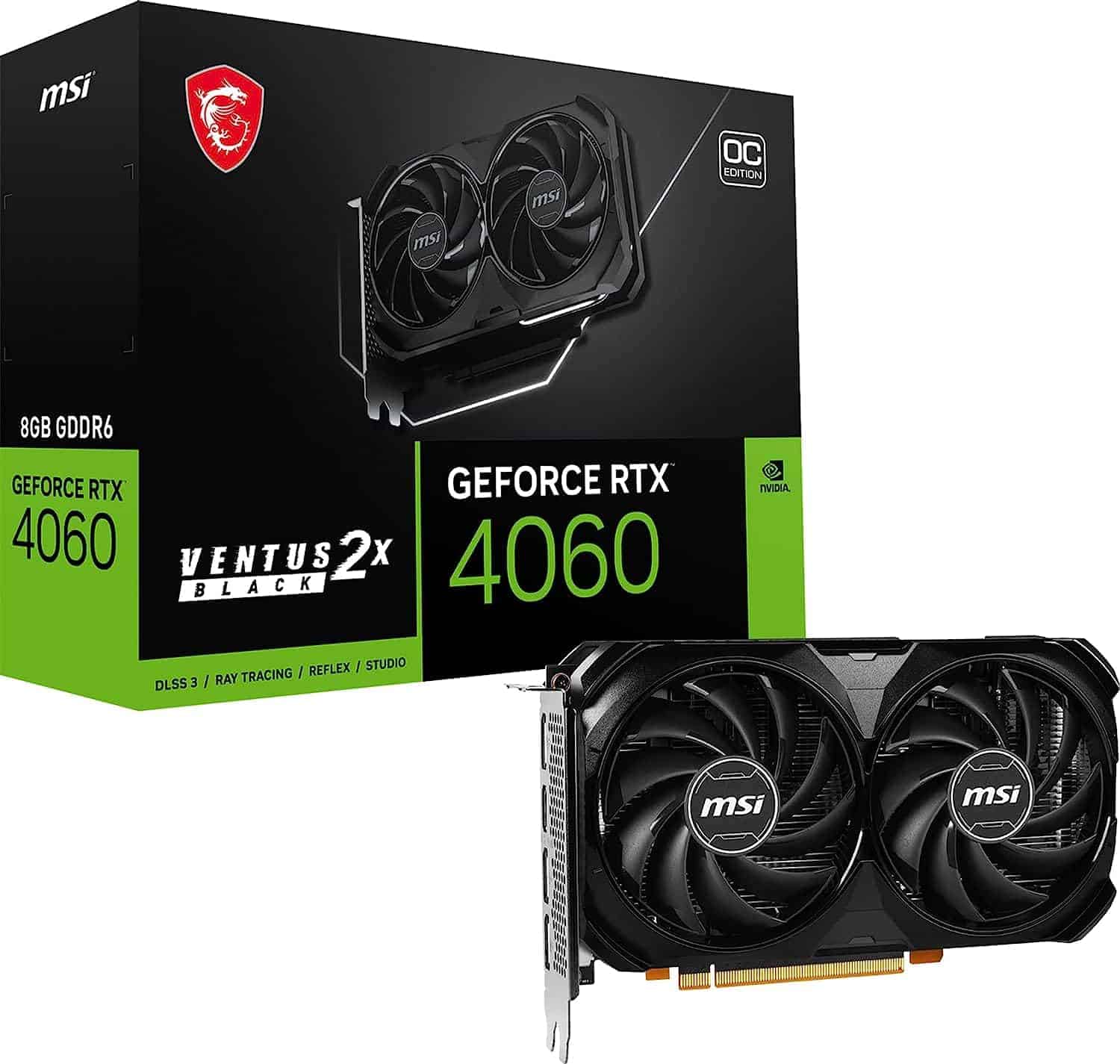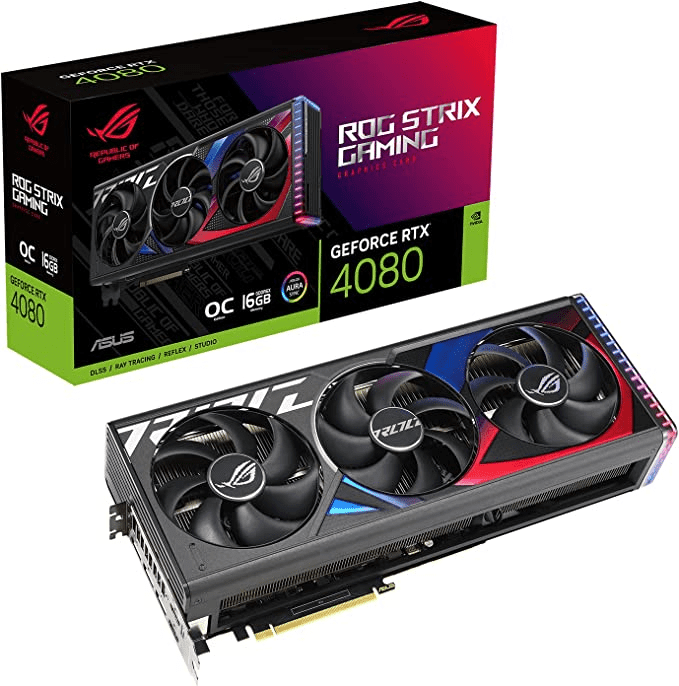You can trust VideoGamer. Our team of gaming experts spend hours testing and reviewing the latest games, to ensure you're reading the most comprehensive guide possible. Rest assured, all imagery and advice is unique and original. Check out how we test and review games here
We’ve got all the details in our comparison of the RTX 4060 vs RTX 4080 so you can see how these Lovelace GPUs compare to one another.
The release date of the RTX 4060 has arrived. Now that it has finally dropped, gaming enthusiasts have a new affordable way to access the Ada Lovelace architecture and the technological innovations it brings. This low price has made the card popular among the more budget conscious among us, however, the GPU has received criticism for its low level of VRAM.
The same complaint certainly can’t be made about the RTX 4080. In fact, it’s pretty hard to pick a fault in any of the RTX 4080 stacked specs, though the card’s MSRP might raise a few eyebrows. Because of the differences in price and performance that we’ll be breaking down in this comparison, there should be one card which makes more sense for you. To help figure out which one that is we’ve given a complete overview of the two with multiple different sections. Let’s get into it.
RTX 4060 vs RTX 4080 – specs
| Specification | RTX 4060 | RTX 4080 |
| GPU | AD107 | AD103 |
| Architecture | Ada Lovelace | Ada Lovelace |
| CUDA Cores | 3072 | 9,728 |
| Base Clock (MHz) | 1,830 | 2,205 |
| Boost Clock (MHz) | 2,460 | 2,505 |
| Memory | 8GB GDDR6 | 16GB GDDR6X |
| Memory Bus | 128-bit | 256-bit |
| Memory Bandwidth | 272.0 GB/s | 717GB/s |
| Cache Memory | 24MB | 64MB |
| Bus Interface | PCIe 4.0 x8 | PCIe 4.0 x16 |
| Tensor Cores | 96 | 304 |
| Total graphics power | 115W | 320W |
| Maximum display resolution | 4K at 240Hz or 8K at 60Hz with DSC | 4K at 240Hz or 8K at 60Hz with DSC |
The specs on this table are pretty one-sided, with the RTX 4080 consistently coming out on top. While both cards may have the same maximum resolution, it’s the RTX 4080 which will be capable of producing the best frame rates at these top resolutions.
Perhaps the most striking difference is in the CUDA core count. The RTX 4080 has more than three times the number of the RTX 4060. These cores do much of the brute calculations work necessary for generating graphics. The more you have the faster these calculations can be completed. The RTX 4080 doesn’t waste this power by having bottlenecks elsewhere either. There are 16 PCIe lanes and a 256-bus width. This is double the bus width and lane count of the RTX 4060.
One area where the RTX 4060 is doing better is in total graphic power. By having a maximum of 115W rather than the 320W of the RTX 4080, the 4060 is not only cheaper to run on a daily basis but also needs a less expensive PSU to keep it juiced up. The best PSUs for the RTX 4080 can cost a pretty penny.
RTX 4060 vs RTX 4080 – architecture
Architecture may be only a single row in a specs table, but it has a huge effect on performance. It can make comparing two GPUs from different generations less straightforward. However, as both the RTX 4060 and RTX 4080 feature Nvidia’s Lovelace architecture, it does not have to feature so much in your consideration of these GPUs.
Fortunately, this architecture is quite possibly the most advanced we have ever seen in a GPU. It boasts 3rd generation-dedicated ray tracing cores, that ensure the lighting effect is implemented more efficiently than ever before. There are also 4th generation Tensor cores which significantly boost AI calculations and make the impressive abilities of DLSS 3 possible.
RTX 4060 vs RTX 4080 – performance
Unlike with architecture, we can see quite a significant difference between these two cards in terms of performance and, unsurprisingly, the RTX 4080 comes out on top.
The performance of this card is truly a thing to behold. This is close to the top of what is currently possible for commercial graphics cards. With frame rates of over 100FPS even on ultra settings, this is definitely one of the best GPUs for 4K and among the best GPUs for ray tracing.
The RTX 4060 meanwhile, is among the best GPUs for 1080p but struggles at the resolutions above that. Unlike the RTX 4080, there is not such a good 4K performance for the 4060. This is because of its limited bandwidth caused by fewer PCIe lanes and limited bus width among other weaker specs.
RTX 4060 vs RTX 4080 – price
Price is vital to consider when looking for a GPU and often the choice can essentially be made for you if a card is out of your range. It is very possible this could occur here too, with the RTX 4080 going coming with an eye-watering MSRP of $1,199. That is, to put it bluntly, a lot of money. However, it does arguably justify this price by offering a performance level that you won’t find any cheaper.
The RTX 4060’s price, meanwhile, is more modest, being a mere $299. You still could argue this is a lot considering you are getting just 8GB of VRAM, but it is an impressively cheap way to gain access to DLSS 3 and good ray tracing performance. If you want to find out where to buy the RTX 4060, we’ve got you covered.
MSI Gaming GeForce RTX 4060

Base Clock
1830MHz
Boost Clock
2460MHz
VRAM
8GB
Recommended PSU
300W
ASUS ROG Strix GeForce RTX 4080 OC Edition

Base Clock
2200MHz
Boost Clock
2500MHz
VRAM
16GB
Dimensions
357.6 x 149.3 x 70.1mm
Recommended PSU
750W
Final word
If you are comparing the RTX 4060 vs RTX 4080 in terms of sheer ability and power, the RTX 4080 wins hands down. Its specs are top-end across the board, with a CUDA core count big enough to put the RTX 4060, and many other cards out there, to shame.
However, in reality, performance is not the only concern for people looking to buy a new GPU. Gaming ability must be balanced against price and this is where the RTX 4080 can start looking unappealing. Overall both these cards balance price and performance so differently that picking between them comes down to personal preference and budgetary requirements.
If you are looking for the top level of performance, and don’t mind paying for it, there are few cards out there better than the RTX 4080. If, however, you are looking for a more affordable card, but still want access to DLSS 3 and good ray tracing performance, the RTX 4060 looks set to serve your needs.







